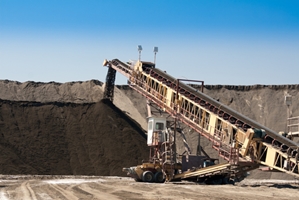The number of jobs in Queensland’s coal industry could be set to rise, as the sector gears up for greater success in international markets.
Queensland Resources Council (QRC) Chief Executive Michael Roche admitted commodity prices were on the decline, but demand for the state’s coal is “still significant”.
January statistics from QRC showed Queensland’s coal industry added 208,000 jobs between 2013-14, and the resources sector is also a notable provider of apprenticeships and traineeships.
Jobseekers in the state are therefore likely to welcome the news that the coal industry is about to enjoy a period of growth. The sector already contributes approximately $20 billion a year to the Queensland coffers.
“Coal exports to end-May sit at about 200 million tonnes and are set to reach a new record of around 220 million tonnes for [the] 2014-15 financial year,” Mr Roche explained.
“This new record level of coal exports will be 5 per cent higher than last year’s 209 million tonnes, driven by continued strong demand from China, Japan, India and Korea for the Bowen Basin’s high-quality coking coals, used in [the] production of raw steel.”
India coal demand crucial to growth
India will be one of the biggest consumers of Queensland’s exports. An Office of the Chief Economist in the Federal Industry Department report revealed the country is keen to secure the state’s thermal coal for new power stations that are currently under construction.
Building projects are also on the rise in the industry, which bodes well for Queensland’s coking coal production.
“From 2017, India’s new coal-fired projects require high-energy low-ash coal. India’s domestic coal is largely high-ash low-energy,” Mr Roche said.
“There are 300 million people in India who don’t have access to basic electricity and the Indian government has been clear it wants to change that.”
India’s Minister of State for Power, Coal and New and Renewable Energy, Piyush Goyal, has already confirmed coal is key to the nation’s future power distribution plans.
On Tuesday (June 16), IBISWorld predicted Australia’s mining sector would recover in the 2015-16 fiscal period, having suffered a notable drop in exports and revenues over the last 12 months.
However, the organisation argued brown and black coal markets may take longer to settle. Brown coal in particular experience a lack of demand from operators over 2014-15.
Therefore, it appears Queensland’s coal market will buck the national trend if the QRC’s rosy outlook turns out to be true.
By Leanne Macnamara, Public Affairs Coordinator

